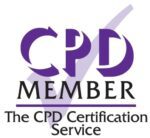SEO, that ever-evolving landscape, always seems a step ahead. Just as you feel you’ve mastered it, a new Google algorithm update rolls out. Or there’s a shift in user behaviour, keeping us on our toes. Navigating the SEO changes expected in 2024 can be daunting. So, to help out we sought insights from Roberto Popolizio, a seasoned Content Marketing Manager at Website Planet.
Boosting revenue for digital marketing agencies and eCommerce stores, Roberto excels in crafting CRO-focused content marketing campaigns and forging strategic partnerships.
Delving into his thoughts on SEO and the anticipated trends for 2024, Roberto shared, “It’s like playing 4D chess with a blindfold on. But hey, that’s what makes it exciting and challenging.”
As we prepare to explore the future of SEO, including 2024 SEO trends and strategies, his unique perspective promises to shed light on the ever-changing marketing skill.
SEO Changes in 2024 and Strategy
As big changes are coming in 2024, could you share three SEO tips that you believe will stand the test of time?
Let’s think about the leaked documents from the antitrust lawsuit against Google in 2020.
The big takeaway is that users’ signals impact rankings more than content. This is very different from what SEO gurus and content marketing prophets have been praising for years. Google needs conversion signals to evaluate content quality, no matter how good it gets with N-Grams, vectors etc.
Then there’s AI, which now allows even my grandma to produce content at scale. Meanwhile Google SGE scans the entire web to give me the solution to any problem I have on a silver plate so that I won’t need to click on anything.
Rankings and traffic will be harder KPIs to reach, and less valuable anyway, so SEOs will have to focus on what really matters – make visitors take action on their website!
ROI-Focused Content Strategy
Here are the 3 pillars of an ROI-focused content strategy:
- Make sure that you know what you want to do with the traffic landing on your pages. Sounds obvious, but I still see a lot of websites creating content with no clue of what purpose each page will serve in the overall marketing plan. Subscribing, buying, clicking, downloading something. There must be an action you want the reader to take once he’s done with reading.
- Start your content strategy by interviewing your sales agents and customer success team. Understand what your ICPs need, what brings them to you, and what makes them never leave. Only then do you fire up your keyword research tool. A new business needs to leverage socials to get the initial data.
- Do NOT waste the reader’s time. Forget about keyword-rich intros, featured images and other content elements that make people skim through the content and scroll down. Give your visitors what they want ASAP, possibly in the above the fold. This is the portion of content that shows up when you first land on a web page. Remember what we said about users’ signals? A high Bounce Rate is not necessarily a bad thing.
SEO and Its Role in your Marketing
How do SEO considerations fit in the biggest digital marketing plan?
If people go on Google (or any other search engine) to find solutions to the problems you solve, then SEO is your best bet.
For example, you sell email outreach software. Your target customers are probably googling something like “best outreach software“ or “how to scale outreach”. SEO is most likely your top channel here for a long-term strategy.
But if you sell some sort of highly specialised medical devices, it’s unlikely that clinics are looking on Google. Direct outreach here is probably a better option. Even SEOs themselves are all on LinkedIn and Twitter (sorry, X), many of them do not even have a website, because Google is not where their ideal customers hang out.
Talk to your sales department (or customers) before spending time and money on keyword research tools.
They know better than anyone (including yourself, my dear 20-years experience CEO) where your audience/prospects hang out.
Identify SEO blindspots
When we talk about an ‘SEO audit,’ it’s clearly more than just checking for broken links and outdated meta tags. In your opinion, what elements make for a truly comprehensive SEO audit?
Two crucial reports in Google Search Console that many of my clients used to overlook are the Discovered – currently not indexed and Crawled – currently not indexed. These two reports are indicators of how much content on your site Google doesn’t care about, because it is considered low-value.
Initially you may see a few pages never getting indexed at all or getting deindexed. In fact, that may be ok, but underperformance can compound over time. This is a typical situation for websites churning out tons of content for the sake of covering the entire topic, which indeed is good for SEO. However, if uncle Google sees that people are not finding value in your content, it will soon deindex these pages.
What to do When Pages are Not Indexed
When a large portion of your pages is not indexed, Google will start to think that your entire site is not so good. Eventually it will start to lower your rankings across the entire website (especially during core updates).
- Cleaning your index is crucial to help your most valuable content rank. Don’t be scared to remove pages older than that serve no purpose (HTTP 410 and remove internal links pointing to them). If they have backlinks, redirect them to the most relevant page.
- Understand why these pages are not indexed (lack of internal links? Backlinks? Rendering issues?
- Keep an eye also on pages that are indexed but underperforming (zero-clicks pages, very low clicks with relatively low impressions). Figure out why they do not perform and what to do with them. Maybe they are competing with similar pages for the same queries?
Besides that, forget standardised SEO audits, like the ones SEO tools perform automatically. They are not useless, but they are not comprehensive enough and they can’t possibly take into account the nuances and different scenarios affecting your website. You must prioritise those actions based on the impact they may have on your bottom line.
Running SEO Audits
Considering the ever-changing nature of SEO algorithms, how frequently would you recommend that we dive into an audit?
Every website is different: budget, marketing strategy, type of website, SEO situations, business type and other factors must be considered when planning audits.
I would keep it to a couple per year at the very least, but bigger sites and those relying more heavily on Google traffic may want to check their sites’ health quarterly. Many big eCommerce and fast-paced content sites go as far as doing weekly audits.
These are some cases when you need an immediate audit:
- Before/After a significant redesign
- Before and after a migration
- When you experience a substantial traffic loss
- When traffic plateaus, regardless of GOOD content being added regularly
Tip: if you have seasonal peaks of traffic (i.e. you sell Christmas postcards), audit your site 4-6 months in advance depending on your capacity.
Understand the Role of Backlinking
Backlinks are often described as the digital gold rush. For those who struggle to keep up with this, do you have any actionable tips for making it a sustainable practice?
To make link building sustainable, you must first make sure that your website is ready for link building. Make sure that your website is technically sound. For example, your internal linking has been exhausted, and that you know based on data that you actually need links now.
Presuming that you have done a thorough backlinks audit of your site against your competitors, you are probably thinking something like “I need 12 links to this page, 5 links to that one” and so on… Forget all of that.
- Sites rank because of just a few good links. 5-10% of their link profile is usually doing 90-95% of the work. Build 4-5 strong links from topic relevant sites every month for a year, and you’ll be surprised.
- The position of the link matters .Remember what we said about users’ signals? Knowing how important they are, we can also infer that the likelihood of a link to be clicked influences its “power”. What do you care about building a link no one clicks anyway?
Besides that, you want your links inside the content of a page, not sidebars (that’s a worthy expense for ads), not footers, not whatever. Only in-content or from an author bio if you are guest posting and you really have no other placement options – good for branding at least!
Understand the Power of Internal Links
Power up backlinks with internal links. Literally everyone is missing on this. You want to build links from pages receiving links from other pages on the same website (aka internal links). That’s because orphan pages are not easy to find either for the visitor (they are not linked anywhere) and for Google bots.
- So, you want to pay for links? Yes, that can be ok (sorry gurus), but make sure that the post linking to your site is linked from somewhere on that website. Or even better– has its own backlinks.
- Internal linking is crucial also on your website to maximise the impact of your new backlinks and reduce costs.
Building links to pages that make us $$ is usually harder (unless you pay a pretty penny). Hence, your best bet is to focus on assets that are more easily linkable like statistics pages, surveys and everything that contains a lot of interesting data related to your industry.
- Journalists, bloggers and influencers are always on the lookout for data to share, which is why Digital PR is so popular (and expensive!) right now.
- Forget the diversification myth. Forum comments, Reddit posts, profiles and similar are worth it only if they generate real traffic to your site. Don’t build them just for the sake of rankings. The number of referring domains is NOT a ranking factor, and the best you can get is some quick rankings until Google brings you down again.
Building good links is not easy, but it can be simple. For example, open the website, read it and ask yourself “Would I love to be on this site?”. If the answer is yes, then you start looking at metrics, business value and other things (and please don’t make me start on metrics).
Understanding SEO Changes for 2024
Going back to 2024 changes…when you say Core Web Vitals are a weak ranking factor, how do they stack up against other ranking factors like quality content, backlinks, and keyword optimisation?
No one knows with absolute certainty, but data show that Core Web Vitals are a weak ranking factor, and we have already talked about how our common understanding of the top ranking factors may have been wrong all along.
It makes more sense to look at CWV from a UX point of view, not SEO.
You mentioned that cookies will be a bigger game-changer for marketing rather than SEO. How do you see the relationship between these two fields evolving, especially with the phasing out of cookies?
I agree with the many experts who say that marketing may take a step back to its roots when it used to be less targeted. Direct relationships with customers and brand awareness will be crucial to reach wider audiences and help conversions. In other words, influencer marketing, word of mouth (call it reviews if you like), interviews are what many will bet their money on, and I would do the same.
But this doesn’t mean that SEO will die, quite the opposite. Ads will be less effective without third-party data, and people will possibly rely more on Google for advice. However, the typical google’s journey is never a straight line, they rarely convert the first time they search. All in all, brand awareness will be the key to win at SEO, because people should remember you.
What to Keep in Mind for your SEO Strategy
You hinted at expecting some contrarian views in the field of SEO. Could you share what you think will be the most controversial or non-mainstream opinions we’ll hear in the coming year?
Most of what I said so far got me fired from my latest SEO employer before moving to freelancing. Contrarian enough?
People will always claim everything and its opposite, because Google is not perfect, it cannot be, so there will always be guys ranking spam AI sites. Other ones ranking with PBN links from Dear Sir sellers and so on. Point is that I wouldn’t listen to any contrarian or cookie-cutter thinking around SEO that does not take marketing as a whole into consideration.
We believe marketing should be better for EVERYONE – what do you believe marketing should be, in one to three words?
Marketing should be honest, human, and accessible.
If you are looking for more ideas on how to run your own audit, read more in our SEO optimisation guide.
Ready to get started with positive impact marketing?
Set up power marketing systems build a marketing strategy that drives results, when you join our certification.
Develop an advanced set of marketing skills that drive more measurable results to any project and harness the power of psychology, purpose, storytelling, and impact to build trust in an increasingly skeptical world.
Take our certification, build your marketing plan and build your ultimate marketing toolkit.




